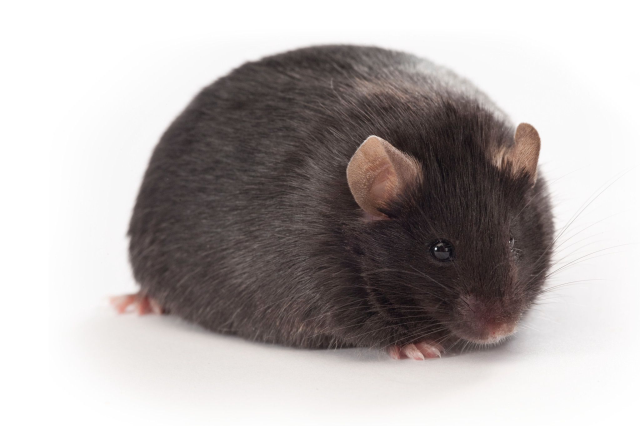Too bad… both work well as a combo for me… but did TRT before rapa for a year and had great results… just even better with rapa… past 3 years.
ITP could have chosen many substances to succeed but most failed and let’s be honest Richard Miller looks way too boring to cheat and if he were a cheater he wouldn’t still be just a lowly government clerk
And rapamycin trials in animals have been very repeatable and in fact only failed to extend life in 1 trial only, one done with a very specific strain of mice (db/db mice)
db/db’s know them well. Not surprised it failed they are ‘very diabetic’
Even that study is useful in that it highlights that Rapamycin should not be taken if you are diabetic. In my opinion that study was a success too.
I think it may be more nuanced than that. These mice had what I believe would likely be called uncontrolled diabetes (i.e. no effort at blood sugar or insulin management). So perhaps the correct lesson is that overweight, diabetic people who are doing nothing to control their diabetes are not likely to benefit from rapamycin?
Or - if you have a body shape like that of the mouse below, and don’t track your blood sugar levels, you may want to avoid rapamycin?

db/db Mice (JAX® Mice Strain) Details
db/db mice are used to model phase 1 to 3 of diabetes type II and obesity. Mice that are homozygous for the diabetes spontaneous mutation (Leprdb) demonstrate morbid obesity, chronic hyperglycemia, pancreatic beta cell atrophy and come to be hypoinsulinemic. Affected mice are polyphagic, polydipsic, and polyuric. Obesity begins at three to four weeks of age. The BKS background brings an uncontrolled rise in blood sugar, severe depletion of insulin-producing beta-cells of the pancreatic islets, peripheral neuropathy, myocardial disease and death by ten months. Exogenous insulin results in loss of control of blood glucose levels, while gluconeogenic enzyme activity increases. Metabolic efficiency is increased, while wound healing is postponed. To Charles River from The Jackson Laboratory in May 2002.
https://www.criver.com/products-services/find-model/jax-dbdb-mice
Believe it or not, there may be some people here who may look like your mouse and are interested in a silver bullet treatment such as Rapamycin. I know of one myself (not me) and have cautioned them not to take Rapamycin because of their uncontrolled diabetes (even though they take metformin) and being overweight. If there’s one, there’s bound to be more that I’m not aware of.
Mice in this study died primarily from inflammation related to diabetes instead of normal cancer. They died earlier than the control due to Rapamycin-induced enhancement of diabetic inflammation.
If your blood sugar is in the diabetic zone, I’d be cautious about using Rapamycin (I wouldn’t do it).
I was in pretty good shape–almost as good as you–until I got sick when I hit 70, and that was without rappa or TRT. I deteriorated for a while but then bounced back at 75. What’s your time in the hundred-yard dash?
@SNK, my concerns are twofold: 1) I didn’t start taking rapa until I was 74–not an ideal time to start, as most of the age-related damage has been done. 2) I have kidney disease, which automatically lowers my life expectancy. Whether rapa can mitigate the effects of the disease is unkown, but isn’t likely.
@DeStrider, I think diabetes lowers the life expectancy by an average of 12 years, depending on the age it developed and other factors like weight and blood pressure.
@DeStrider, sorry i didn’t answer your question sooner. I take spermidine, fisetin, pycnogenal, beta-alinine, and 1500 grams of baking soda diluted in water.
This last may be the best of all because it saved my life. I have acid reflux and acidosis, which are strongly associated with mortality. My nephs don’t endorse the use of baking soda to treat kidney problems, so I did my own research and found the perfect dose, which lowered all the bad numbers and raised the good ones.
Of the other supplements, the only one I’m sure of is beta-alinine. It has been well studied as a performance enhancer, with an average increase of seven percent in strength, speed, or whatever you are measuring.
@Agetron, you might look into beta-alinine yourself. I think you’d get something out of it.
@Tim Yes, diabetes is terrible. My concern is with the mouse study with diabetic mice. The Rapamycin-diabetic group had a lower life expectancy than the control group that was diabetic and did not take Rapamycin. They also died of diabetic inflammation instead of cancer.
Based on this study, it appears diabetics (with abnormally high blood sugar) should not take Rapamycin as it may decrease their life expectancy instead of increasing it. Other evidence is that Rapamycin+(Metformin or Acarbose) increases life expectancy beyond just Rapamycin itself.
Hi DeStrider, do you know how well the rapa-arcarbose combination worked. Are we talking months or years?
If you’re talking mice, you’re always talking months. The difference with acarbose was significant and provided the maximum benefit of all ITP interventions.
it’s beta-alAnine, take frequent small doses throughout the day as the prickly sensation from larger doses is unpleasant
@Arhu The prickly sensation goes away after a year or so. I take 3/4 of a spoonful. Thanks for the corrected spelling.
See the paper and related information in this thread: New Paper: Lifespan Benefits for the Combination of Rapamycin plus Acarbose in mice
Humans are not mice and in humans it is pretty well established that increasing protein intake upto 2 mg/kg increases muscle synthesis and reduces OSTEOsarcponia (yes it reduces increases bone density)
If you think humans are not mice and those studies aren’t very useful, why are you using a mechanistic study on fibre-deficient diet to promote carnivore diet?
Yes I’d agree with that. Depends on your goals -
are your optimizing for longevity in the long run (then don’t want too many growth factors (mTOR, IGF-1, etc constantly revved up), and inflammatory process and wear, etc)
or
are you optimizing for max athletic performance (of a given sort eg the amount (and type) of muscle would be very different if goal is marathon, vs 100m sprint, vs weight lifting records).
Clearly there are overlap where a certain amount of exercise, protein and muscle training is helpful for longevity in the real world for humans (in a non sterile lab). But the optional amount of protein is almost certainty different for max muscle vs max longevity.
